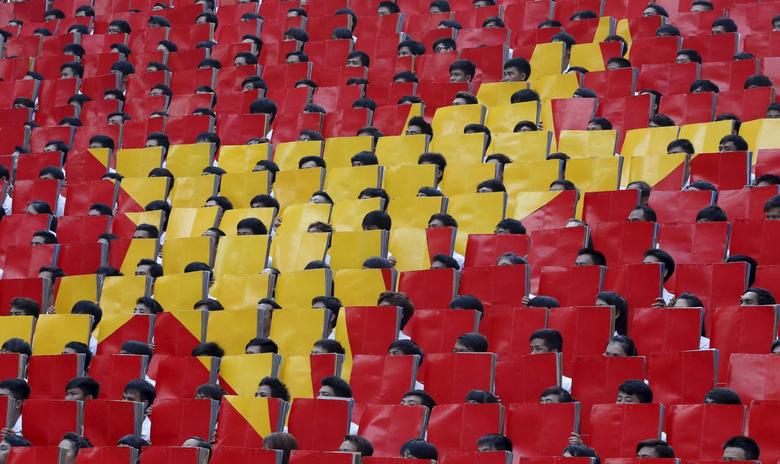It may not be the spectacular reunification celebration that we all know since some social restrictions will still be in place but it will certainly feel like it!
As April 30, Liberation Day or Reunification Day, as it is commonly labeled, in Vietnam approaches, it looks as if Vietnam may finally head toward the first victory over COVID-19, with restrictions easing up and no deaths at the present moment of writing.
Most foreigners living here know about Liberation or Reunification Day — the day in 1975 when the gates of the presidential palace in Saigon were knocked down by a Vietnamese tank, marking the end of the ‘American war,’ as it’s more commonly known here, and the unification of the nation as a whole entity.
Although this can be a time for reflection, a pause for thought or a shock to realize that life isn’t always going to be predictable, I do believe that it is useful to do so, even if this is supposed to be an uplifting article about Reunification Day.
Firstly, to remember what the nation and the people have achieved and endured in the past and, secondly, to not be afraid to accept change and adapt to the rapidly changing circumstances around us during the pandemic and dealing with the future, just as the Vietnamese had to do after the war finished.
The Vietnamese are a fairly pragmatic lot. They don’t dwell too long on past losses as life here demands that citizens get on with the business of surviving and prospering, regardless of drought, floods, disasters and economic roller-coasters.
That same determined outlook helped the Vietnamese get to the end of the war and it has served them well again in dealing with the present health crisis.
I wrote a story recently and a Vietnamese friend commented and I quote, “I was talking to a founder of Water Safety Vietnam who considered the life lesson she got from her time in Vietnam as: ‘make do’. I think that pragmatism permeates life from a young age, and to this day I am grateful for what I call my Vietnamese resilience.” (Thu Trang T)
And this is what we celebrate on April 30 — not just the end of a war but the tribute to the strength of the Vietnamese throughout a crisis.
The parallels between that fortitude and the present attitude and acceptance of what needs to be done during the COVID-19 pandemic are remarkable.
Although Vietnam is mostly described as a ‘middle-developing country,' there was no hesitation in immediately setting up a health protection and prevention strategy as quickly as the government could.
Just as Vietnam had to face a supposedly technologically advanced American army and ‘made do’ with whatever they had, so the country rapidly adapted to the scientific and logistical hurdles of dealing with so many potential (and real) cases of infection.
As is typical of their character and culture, the Vietnamese have thrown everything they have at the problem, utilizing already existing military facilities as well as public hospitals, creating their own tests and equipment as they go, and imposing testing and tracing regardless of the hardships and costs both economically and socially.
It’s very Vietnamese; it seems to me, “If that’s what we have to do, then we will do it.”
Success for the Vietnamese is often about coming together in difficult times and accepting the burden that everyone will have to deal with.
If you compare this to the more divided and less efficient approaches taken by Western countries to the disease, then there is something worthwhile in the Confucianism philosophy of nation and family first.
Vietnam’s long experience with war served it well during the American war. Now local experience and knowledge in the fight against SARS prewarned them to move quickly to contain the outbreak.
It’s no accident that Vietnam has described this struggle as a general offensive, a reminder of the past and a national encouragement to the people of the nation.
For sure, one thing we should do is salute all the medical workers, the people keeping our communities going (rubbish collectors and delivery drivers, stand up!) and everyone else in Vietnam who has helped out during a very stressful and worrying time.
Yet just as Reunification Day is not the end of the story of Vietnam’s continuing development, so to the final elimination, prevention or vaccination success against COVID-19 has not yet arrived.
But that’s where the resilience kicks in. We ‘make do’ during this time. We support each other and offer encouragement when it all seems too much and we keep up the ‘good fight.'
Certainly, one thing has been reconfirmed. Life is not really about money, fame or things we own.
A good life is the measure of how we treat each other and it is remarkable how much courage, bravery and generosity that is out there.
We are all in this together and although this pandemic has kept us apart, we will be reunited at some point in the not too distant future and liberated from our worst fears.
Happy Reunification Day to everyone!


















































